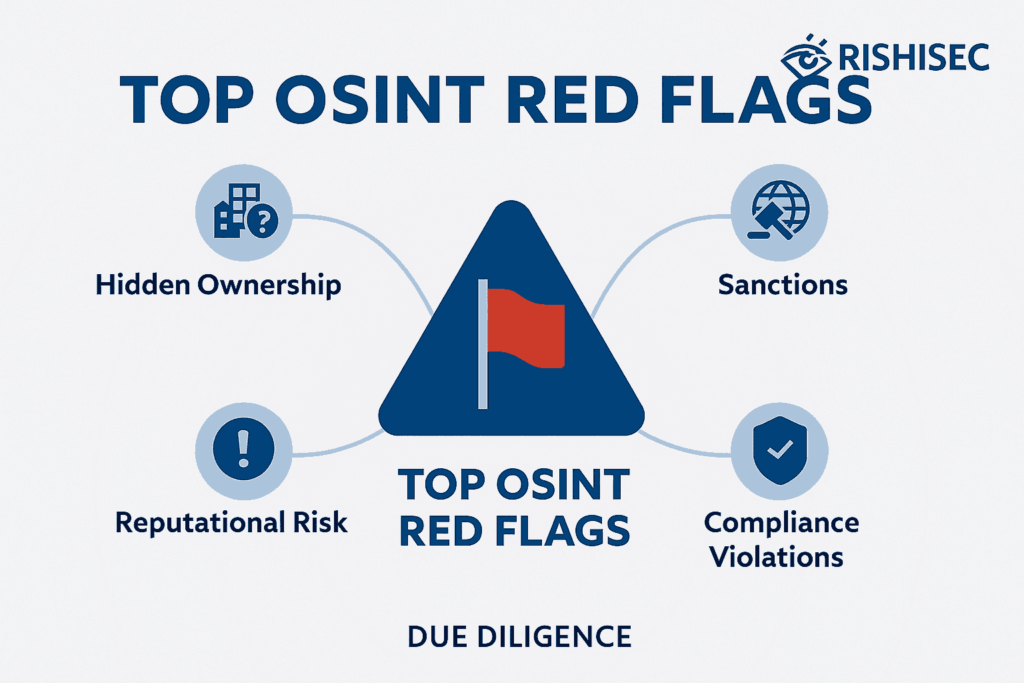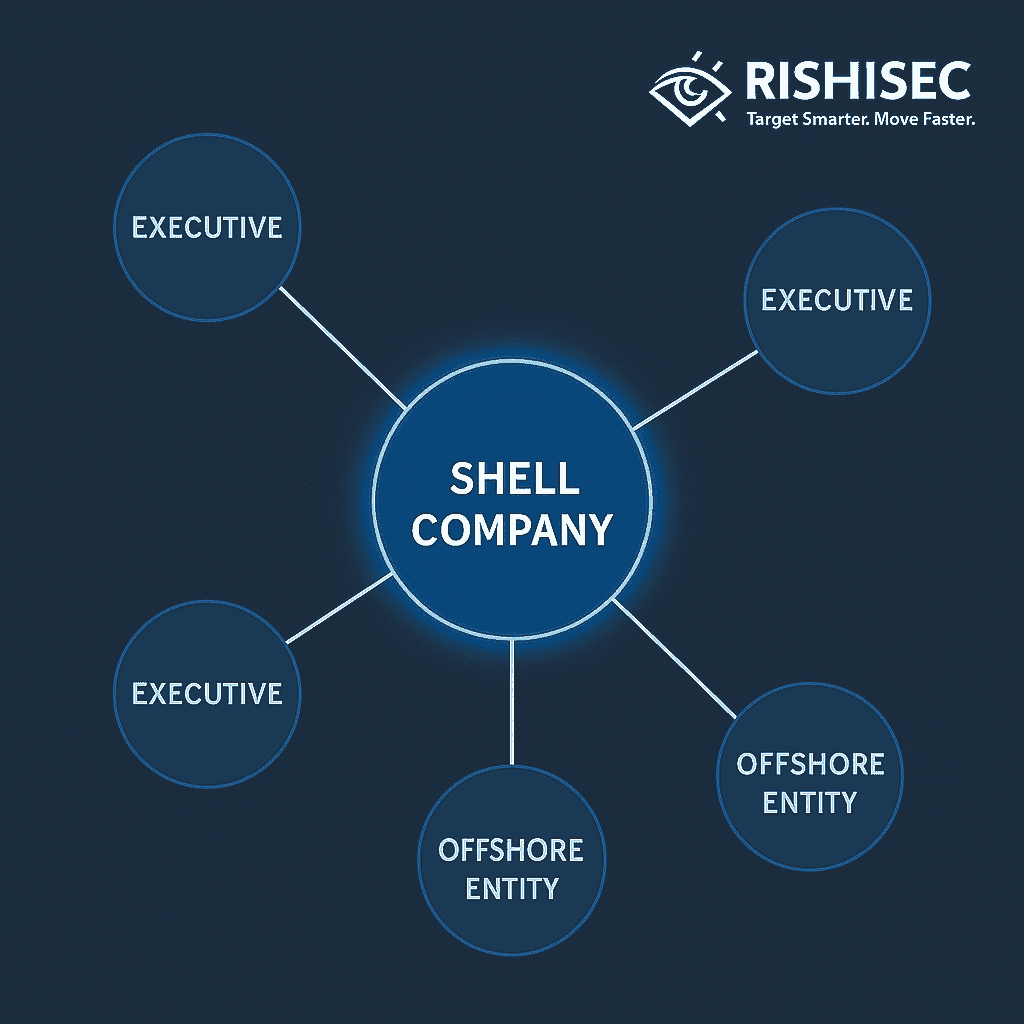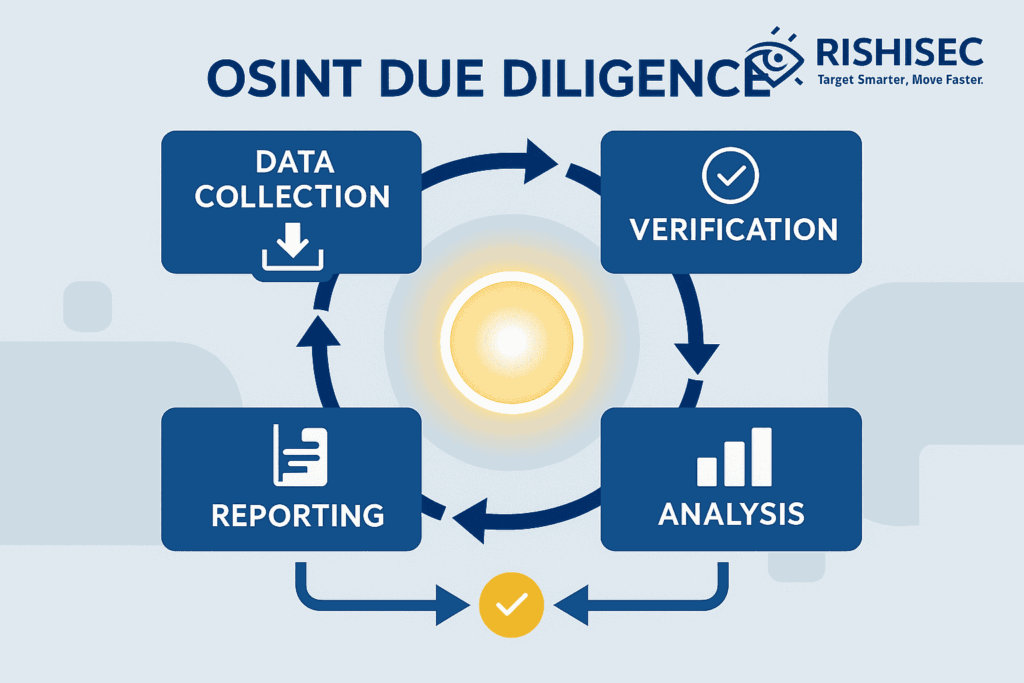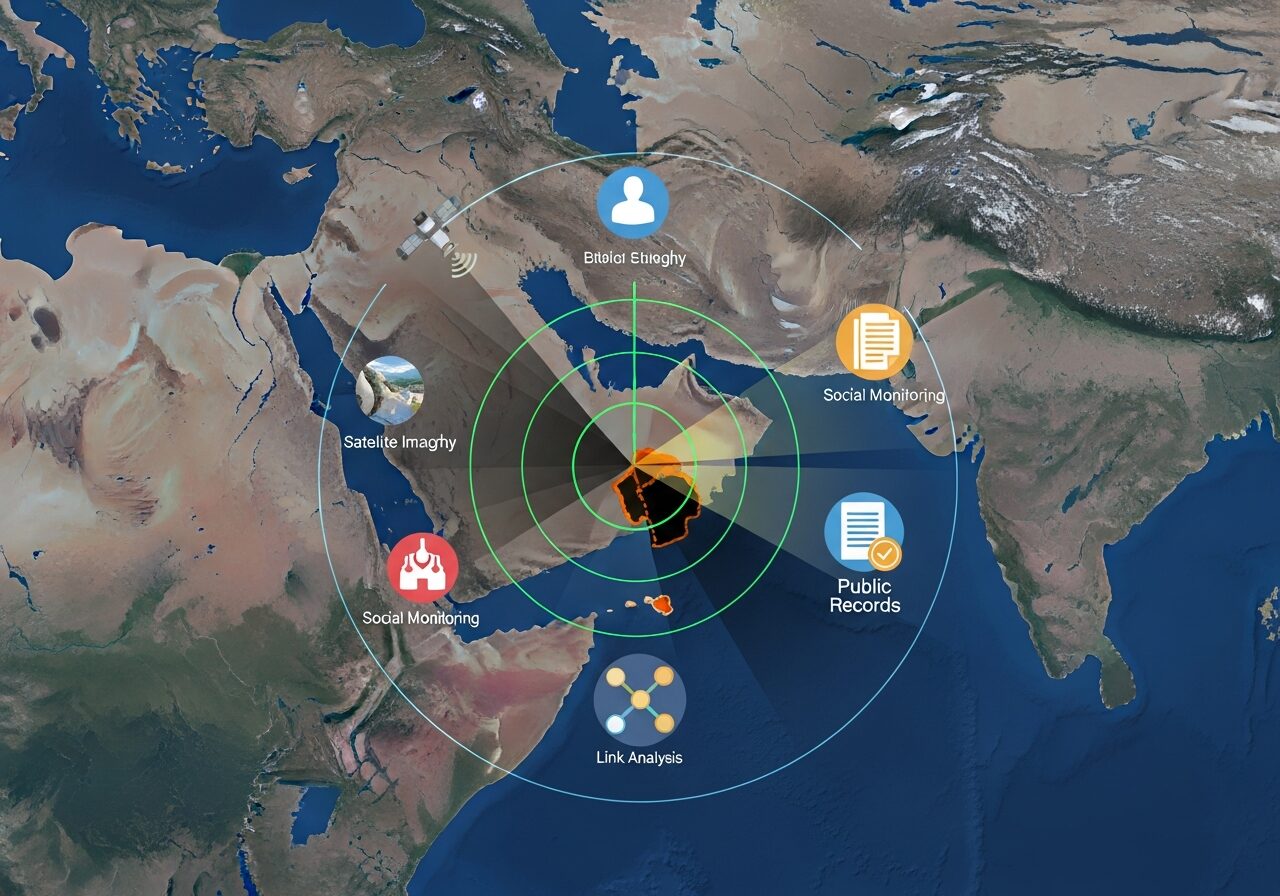Introduction
In today’s global economy, partnerships, mergers, and investments carry significant risks. Hidden ownership structures, regulatory violations, or reputational red flags can derail deals and damage trust. That is why OSINT due diligence investigation is becoming a standard practice for risk analysts, investigators, and due diligence professionals. By using open-source intelligence, they can uncover crucial insights long before contracts are signed.
This blog explores how OSINT strengthens corporate due diligence. We will explore practical methods to uncover hidden information, identify potential red flags, and ensure that business decisions are based on reliable intelligence. Whether you are a risk analyst vetting a new partner or an investigator examining complex ownership structures, OSINT offers the tools to reveal the truth.
Why Due Diligence Analysts Need OSINT
Corporate investigations often rely on self-reported information, which may be incomplete or misleading. OSINT fills the gap by providing independent and verifiable intelligence from open sources:
- Transparency: Access to corporate registries, sanctions lists, and regulatory filings.
- Verification: Cross-referencing claims against public data sources.
- Reputation: Monitoring media coverage and social chatter around companies and executives.
- Connections: Mapping networks of ownership, influence, and potential conflicts of interest.
As shown in our article on fraud investigations with OSINT, open-source intelligence often reveals hidden patterns that formal reports may miss. For due diligence analysts, this means greater confidence and reduced risk in decision-making.
Key Red Flags Exposed by OSINT

Hidden or Complex Ownership
Shell companies and offshore structures are common tools for concealing true ownership. OSINT can uncover:
- Links between executives and previously undisclosed entities.
- Connections to politically exposed persons (PEPs).
- Relationships with sanctioned individuals or businesses.
Regulatory and Compliance Risks
Due diligence must account for compliance with anti-corruption, labor, and environmental regulations. OSINT helps by:
- Checking sanctions and watchlists for relevant entities.
- Reviewing court filings or regulatory enforcement actions.
- Identifying past compliance violations through news or government databases.
Reputational Concerns
Negative press and public sentiment can undermine partnerships. OSINT provides visibility by:
- Monitoring global media for investigations or scandals.
- Tracking disinformation or smear campaigns targeting companies.
- Analyzing social media sentiment in local markets.
Similar to what we highlighted in our guide to OSINT for journalists, public data can be powerful for uncovering narratives that traditional due diligence overlooks.
How Kindi Streamlines Due Diligence Investigations
Performing due diligence across multiple jurisdictions can overwhelm even experienced analysts. That is why Kindi, RishiSec’s AI-powered OSINT platform, is designed to help. Kindi offers:
- Automated data collection: Pulling information from registries, social media, and open databases in one workflow.
- Link analysis visualization: Mapping corporate ownership, personal ties, and financial flows.
- AI-powered summaries: Highlighting red flags without sifting through raw data manually.
- Collaboration tools: Teams can annotate, share, and export reports for decision-makers.
For due diligence analysts, Kindi ensures that no crucial detail is overlooked. It turns fragmented data into a clear picture of risk, enabling faster and more confident decisions.

Checklist: OSINT Red Flags in Due Diligence
Investigators can apply this checklist during corporate due diligence:
- Review beneficial ownership to identify hidden stakeholders.
- Check sanctions lists for executive or entity matches.
- Cross-verify financial records and bankruptcy filings.
- Monitor social media and news for reputational concerns.
- Analyze connections with politically exposed persons.
- Use link analysis platforms like Kindi for complex structures.

Case Example: Red Flags Uncovered with OSINT
Imagine an investment firm considering a merger with a foreign company. During OSINT due diligence investigation, analysts uncover that the company’s co-founder is linked to an offshore entity under investigation for money laundering. Further checks reveal negative press in the target’s home country about labor rights violations. These findings prompt the firm to withdraw from the deal, avoiding financial loss and reputational damage. This example shows how OSINT empowers due diligence teams to make informed choices.
Challenges and Best Practices
OSINT is invaluable for due diligence, but analysts must navigate challenges:
- Volume of data: Analysts must filter noise from relevant insights.
- Verification: Open sources must be cross-checked to avoid false positives.
- Legal considerations: Compliance with GDPR and data privacy rules is critical.
Best practices include structured workflows, automation with trusted tools, and documenting a clear chain of custody. For additional context, see our article on integrating OSINT into intelligence platforms, which highlights the importance of structured integration.
FAQ
What is OSINT due diligence investigation?
It is the process of using open-source intelligence to identify red flags, risks, and hidden information in corporate investigations.
What types of risks can OSINT uncover?
OSINT can reveal hidden ownership, sanctions violations, reputational concerns, and compliance risks that may otherwise remain hidden.
Why is OSINT important for investigators?
It provides independent, verifiable intelligence that complements traditional due diligence and strengthens corporate decision-making.
Which OSINT tools are best for due diligence?
Platforms like Kindi are effective because they automate data collection, visualize ownership structures, and streamline reporting.
Conclusion
Corporate investigations are high-stakes endeavors. By adopting an OSINT due diligence investigation, analysts gain the ability to uncover hidden risks, identify red flags, and ensure informed decisions. From reputational monitoring to ownership mapping, OSINT equips due diligence professionals with the tools they need to safeguard organizations.
Try Kindi today to see how AI-powered OSINT can transform your due diligence investigations.
Want to strengthen your OSINT skills and other ones you can suggest? Check out our OSINT courses for practical, hands-on training.



